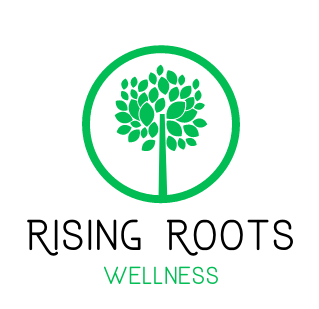6 Myths About Miscarriage

Miscarriages are terrible. Gut-wrenching is a good word that comes to mind. But you know what? They’re also really common.
Studies have shown that up to 20% of pregnancies end in miscarriage. We all probably know multiple women who have experienced this, even if they never said a word about it.
That number is not there to scare you, pregnant readers. I promise it’s not. I know how scary the m-word is, especially in the first trimester. Please know that this isn’t going to be a laundry list of things YOU need to do to “prevent” miscarriage. In fact, you’ll find out below that in most cases, what mama is up to has very little to do with it.
No, I’m not bringing fear to the table today. I’m bringing light, knowledge, and facts. I’m offering you a garbage can to throw your guilt in, if you need it.
You may have guessed by now that I’m one of those women. My first pregnancy ended in miscarriage at 7 weeks. This was 6 years ago. I have 2 healthy babies now.
But I still know that pain. Healing doesn’t mean we forget.
There is a huge lack of information and support out there. In a poll run by the Montefiore Medical Center and the Albert Einstein College of Medicine in the Bronx, N.Y, respondents stated they thought that only 6% of pregnancies ended in miscarriage. 75% thought that it could be caused by a stressful event.
So let’s drop some knowledge and bust these myths!
#1- Miscarriage is rare.
I wish it was. The fact is, as mentioned above, that up to 20% of pregnancies end in miscarriage. 1 in 5, people. 1 in 5. Because we don’t talk about it, it seems rare. As a result, not only do parents going through a lost pregnancy feel like they must have done something wrong- they also feel all alone in that pain. If you’ve been there, and you’re at a point where you feel comfortable, talk about it. Tell people your story, and I’d bet you hear more than a few “me too”s.

#2- Intense exercise or heavy lifting can cause a miscarriage.
Nope! Just not true. The cause of most miscarriages (60%) is a chromosomal abnormality in the embryo. (AKA- nothing we can control!) Obviously, expecting mamas need to listen to their bodies, talk to their doctors, and slow it down sometimes. But let’s not forget the badasses who run marathons while growing a person inside of them! Pregnancy is not a disability.

#3- It’s shameful, and should be kept a secret.

I realize that for many of you reading, that might sound ridiculous. Of course this tragedy shouldn’t be a source of shame. But consider that in the Montefiore poll, 47% of people who had experienced a miscarriage felt guilty about it and 28% had feelings of shame. Here’s a perspective I hadn’t considered: our culture’s policy of not announcing pregnancy until the 2nd trimester (when miscarriage risk is far less) might foster that shame and guilt. Not allowing parents to grieve their loss publicly isn’t doing them any favors.
The grief is heavy enough. Processing through the pain and healing is a long and difficult road. Let’s not make it even harder by encouraging those affected to stay silent.
#4- Risk is increased by past use of hormonal birth control or abortion
I believed this one myself. I was on the Pill for 10 years straight, and then only off for a month or two before conceiving. When I hopped on the research train after my miscarriage, I assumed this was the cause.

The American College of Obstetrics & Gynecology says that’s not the case, stating that taking birth control pills before getting pregnant does not cause early pregnancy loss. In addition, this study showed that even when women became pregnant while still taking birth control, the fetus was not adversely affected.
I’m definitely not a champion for traditional birth control and what it does to a woman’s body. In this instance though, I’m happy to provide some relief to women who thought their past actions had some part in causing their loss.
As for the abortion question? ACOG’s got us there, too. Their website FAQ states that a previous abortion “does not affect your ability to get pregnant or the risk of future pregnancy complications”.
#5- Miscarriage grief isn’t valid.
Well meaning family and friends might say things like “You can try again” or “At least you already have a healthy child” or ” Good thing you weren’t very far along.”
Please, PLEASE don’t let any of these sentences ever leave your mouth. There is nothing you can say to convince a parent that this isn’t a big deal…because it IS. Coming from someone who had a loss at only 7 weeks gestation, I can tell you with confidence that it is crushing.
Respect and validate the family’s feelings in this situation. And if you experienced the loss? Respect your own feelings. It takes as long as it takes, and pushing emotions down doesn’t work. You are under no obligation to act “fine” when you aren’t.
#6- If you miscarried once, it will happen again.
Many a mama has worried about this. There’s the elation of your BFP (big fat positive) rainbow baby pregnancy test, and then…the fear. Will it happen again?
Breeeathe, love. Remember how very common these losses are. Many, many sources ( here and here are two!) are available to reassure you that your risk of miscarrying again is not any higher due to your history. Your OB should do the same (so never be afraid to call them).

It breaks my heart to think of so many women out there blaming themselves for their loss. Please consider sharing this post to spread miscarriage awareness, and make this downright shitty situation a tiny bit easier.
Next up, I’m going to go through what to expect when you have a miscarriage. Also heartbreaking- women are going through this with very little preparation, support, or knowledge of WTF is happening with their bodies.
I’ll also be diving in to ways you can heal your heart after a miscarriage. I’ve just recently come to the realization that I myself- yes, 6 years and 2 babies later- still need some healing. We can do it together.
Have a story you want to share, or tips on how you made it through? Drop it in the comments below!
